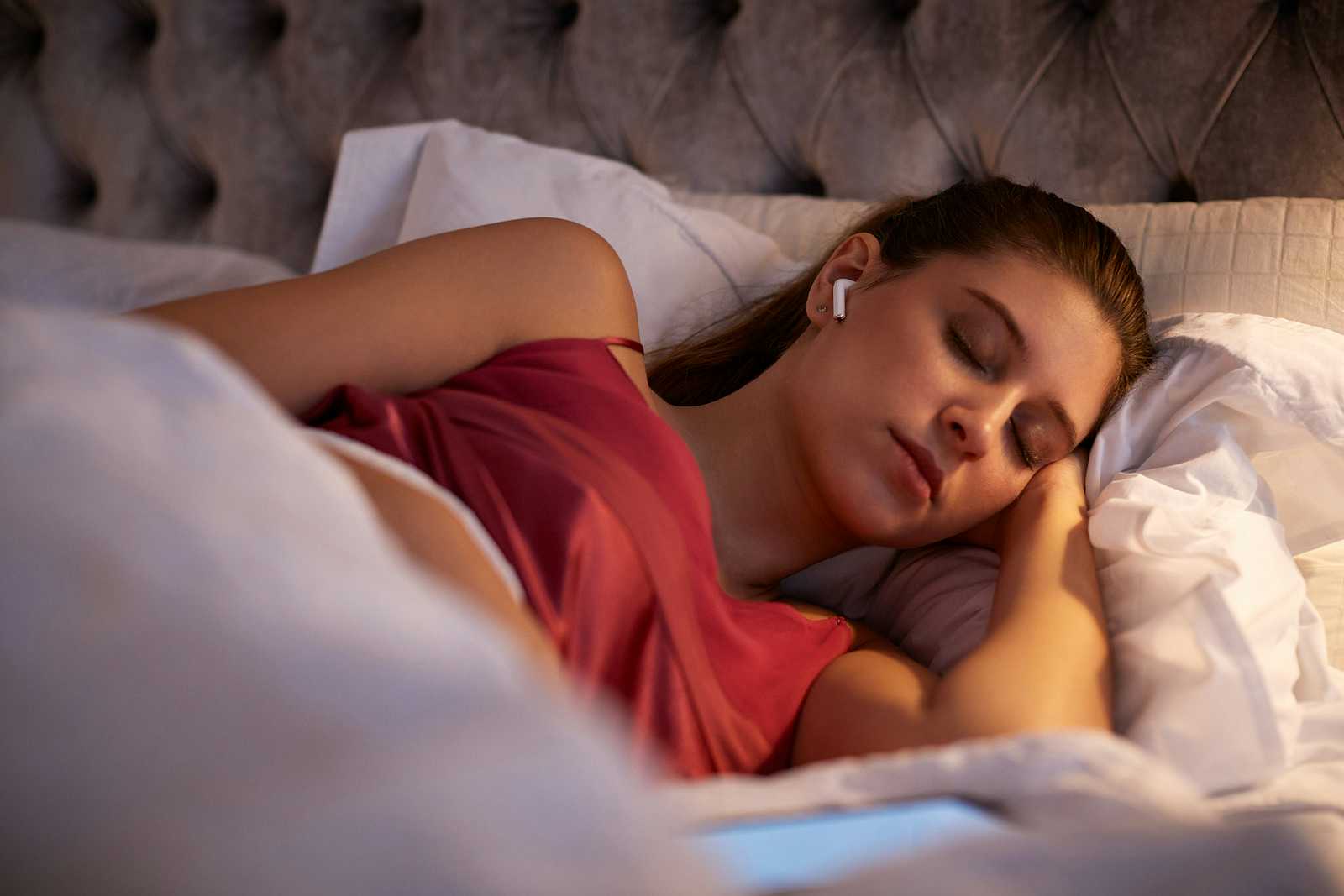
Do you ever fall asleep with the radio or television on? What about dropping off while you listen to a podcast with your earbuds in place? Some people deliberately turn on a broadcast if they wake in the night. Apparently, they find it soothing. However, research suggests that listening to unfamiliar voices might interfere with a normal night’s sleep. You may think your brain is off line, but it appears to be paying attention to certain sounds even during sleep.
How Do Unfamiliar Voices Affect Sleep?
Scientists have known for some time that the brain processes sensory input even during sleep. For this study, the researchers recruited 17 young adults without sleep disorders (Journal of Neuroscience, Jan. 17, 2022). They monitored these subjects for brain activity using electroencephalograph recording. In addition, they monitored the participants’ heart rate, muscle relaxation and breathing.
During sleep, the investigators exposed the volunteers to recordings of either familiar or unfamiliar voices. Since previous studies had shown that people respond differently to their own name, each voice spoke both the subject’s own name and a different name during non-REM sleep.
The unfamiliar voices triggered brain waves indicative of micro-arousals. This suggests that some part of the brain stays alert for possible danger, even during sleep. An unfamiliar voice could signal a stranger and thus disrupt relaxation and sleep. This certainly makes sense from an evolutionary perspective. Even now, hearing a stranger’s voice in the middle of the night could be a danger signal.
Should We Stop Listening to Programs While We Sleep?
Perhaps we would sleep better if we turned off all our devices before bedtime. This research focused on auditory signals, but previous studies suggest that the blue light from smart phones or other electronics can disrupt melatonin production. Over the last few years, politics and pandemic news have put a lot of people on edge and made it hard for them to sleep. Having a soothing, non-electronic pre-bedtime ritual may be helpful in many ways.
Learn More:
We have done a few interviews with sleep experts. You may wish to listen for the advice they offer. Try Show 1268: Learning How to Sleep or Show 1246: Getting the Sleep You Need Even in Anxious Times.
Citations
- Ameen MS et al, "The brain selectively tunes to unfamiliar voices during sleep." Journal of Neuroscience, Jan. 17, 2022. DOI: https://doi.org/10.1523/JNEUROSCI.2524-20.2021

